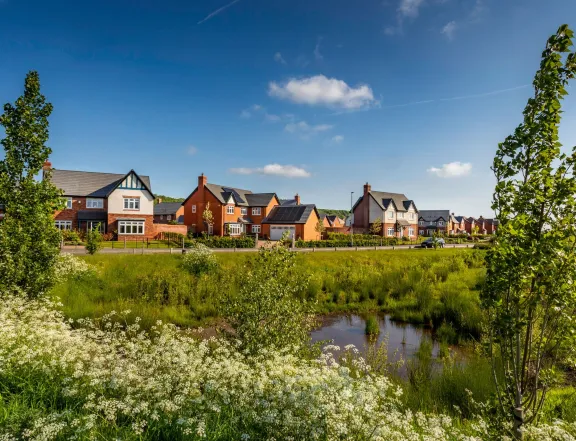When buying a new home, we have a list of things we’ll consider. The location. The type of the property. When it was built. The schools in the area. What amenities are available nearby, and so on. But in the current environment, with consumers now expected to spend up to £3,000 on energy from April 2023, how energy efficient a property is has become one of the most important questions we ask when looking for a new home. And rightly so.
UK homeowners have seen energy costs rise by 80% this year and are set to pay £900 more a year from 2023. This adding a significant strain on family budgets and affecting their long-term plans.
New build homes are well known for their energy efficiency compared to older, period properties. They have very good insulation. They benefit from the use of modern technology and materials at the construction phase. And because they are built in recent years, they follow stringent government standards and regulations, designed to ensure safety, quality, energy efficiency and low environmental footprint.
New report findings
Now a new report from the Home Builders Federation (HBF) ‘Watt a Save’, based on over 1.6 million properties, has found that on average new build homes save their owners £2,600 per year in energy bills, the equivalent of £173 per month. The report also found that new build home buyers are saving over £500 million per year in energy bills, as well as collectively reducing carbon emissions by over 500,000 tonnes.

Energy use of new homes
There is a huge difference in energy use between new homes and older properties. While the average new property is estimated to use approximately 9,094 kWh per year, older homes use more than double that – a staggering 21,621 kWh per year.
With the current energy rates – this translates into annual costs of over £4,169.97 for older properties and just a fraction of that for new homes – at £1,539.17 . For the purposes of the report, the property’s energy consumption is defined by its use of energy for heating, lighting, and hot water among others. It is calculated by taking into consideration the average cost per kWh of gas and electricity combined, based on the prices set by the Government’s Energy Price Guarantee from October 2022.
And this is not all. The HBF survey went on to debunk a common myth – that new homes are considered more energy efficient due to being smaller in size compared to older properties. The report found that “new build homes in the data set are not only larger, with an average floorspace of 90.5m2 as compared to existing dwellings at 83.6m2, but also use significantly less energy per m2 over the year.”
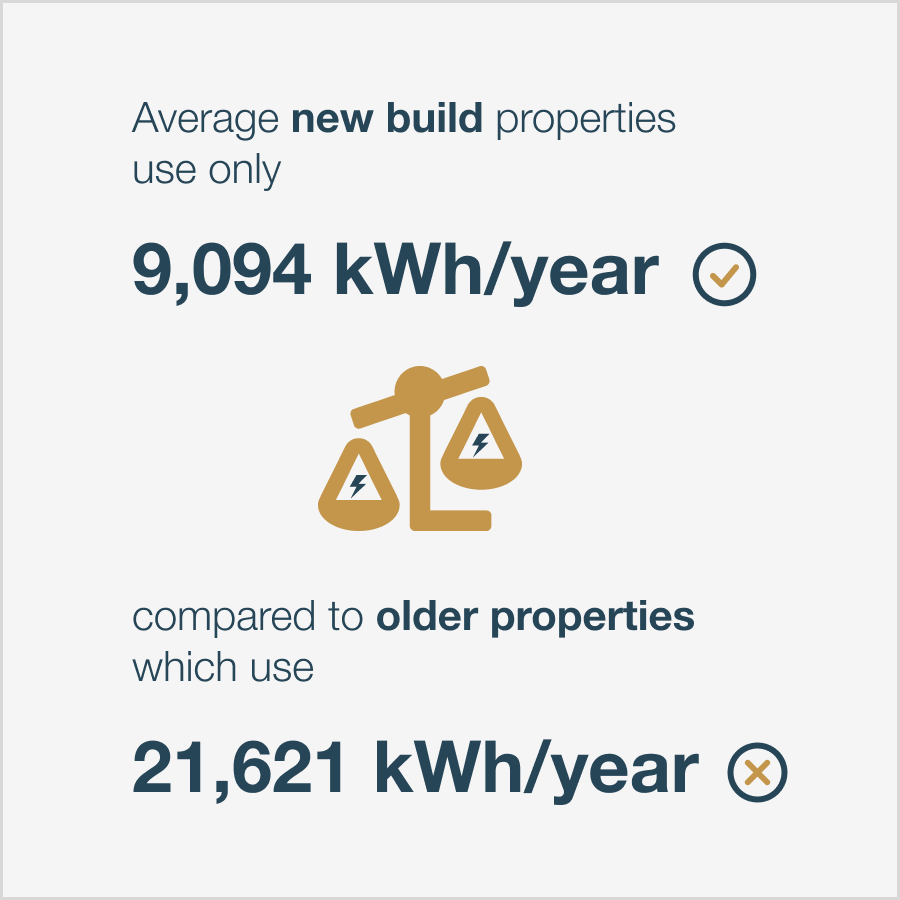 |
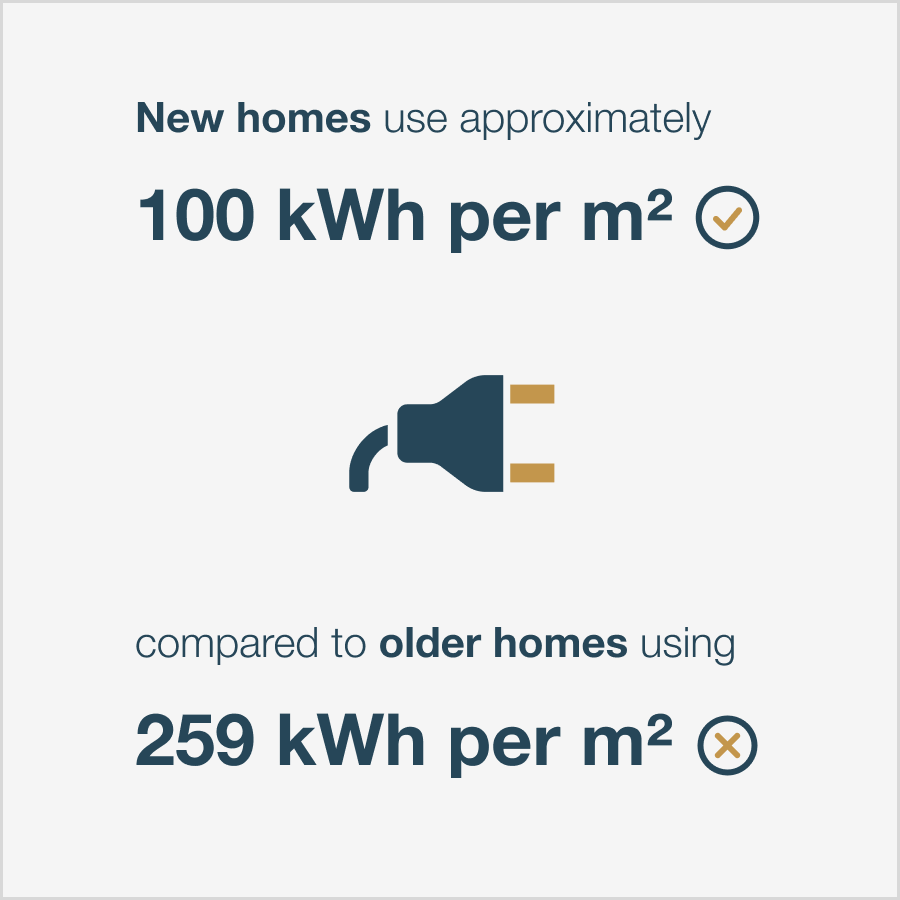 |
Why are new homes more energy efficient?
According to the HBF, 84% of new homes, logged in the year to June 2022, were rated A or B for energy efficiency, compared to less than 4% of existing houses in England. In contrast, 54% of existing dwellings were rated D or lower. An Energy Performance Certificate (EPC) shows how energy efficient a property is, with bands from A to G where A is the most energy efficient and G is the least energy efficient. Every EPC rating corresponds to scores reflecting the government’s Standard Assessment Procedure (SAP) and goes from 1 to 100 plus SAP points. An EPC D Rating is equivalent of between 55 and 68 SAP points. A property that has an EPC rating D or lower is much more expensive to run.
The EPC rating of your home can be vitally important as it will not only save you money in the long run but also future-proof your home. The UK government’s Clean Growth Strategy is one type of regulation which targets all homes in England and Wales to achieve C-rated Energy Performance Certificates by 2035. If the new rules are introduced, it will become a legal requirement for all homeowners to have an energy rating of C or above.

Looking after the environment
As consumers, we are growing increasingly conscious of our environmental footprint with plenty of information and awareness out there. But how about our home’s impact on our planet? According to the HBF, residential properties in the UK account for over 20% of the country’s emissions. In England we have one of the oldest and least energy efficient houses in Europe, with over 70% of our homes built before 1980. It is no surprise then that the environmental footprint of our homes is being subject to close scrutiny and regulations by the government.
The environmental efficiency of new homes comes under the spotlight in HBF’s report which found that new properties account for significantly less CO2 emissions compared to older properties thanks to their energy saving features. According to the data, the average new across all property types, including houses, bungalows, flats and maisonettes, emits 2.6 times less carbon in a year when compared to older houses. So, if you bought a new home last year you’ve contributed to reducing carbon emissions by an average of 2.2 tonnes a year, with a total saving of 548,000 tonnes compared to if you had bought an equivalent older property.
New home, better future
“A home is for life – not just for Christmas”. And truly, buying a home that’s fit for the future can make a lot of sense, not just financially but also from an environmental point of view. Investing in a new home will ensure you and your family will continue to reap the benefits in the years to come and insulate you from future energy price shocks.
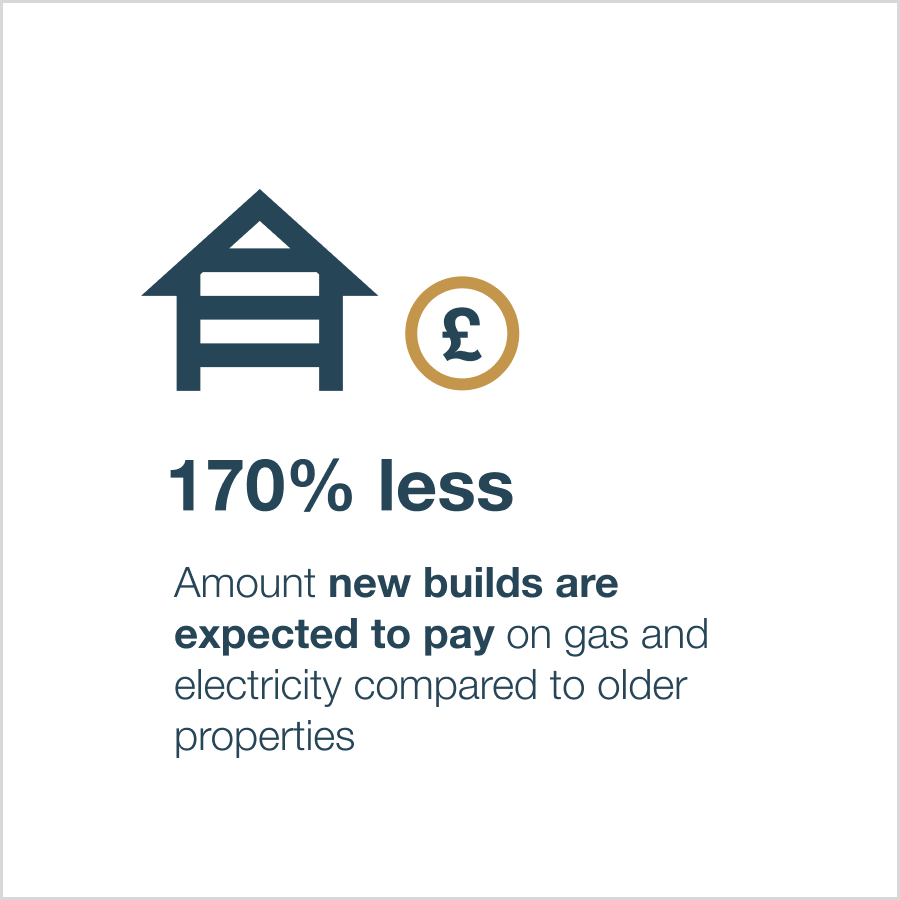 |
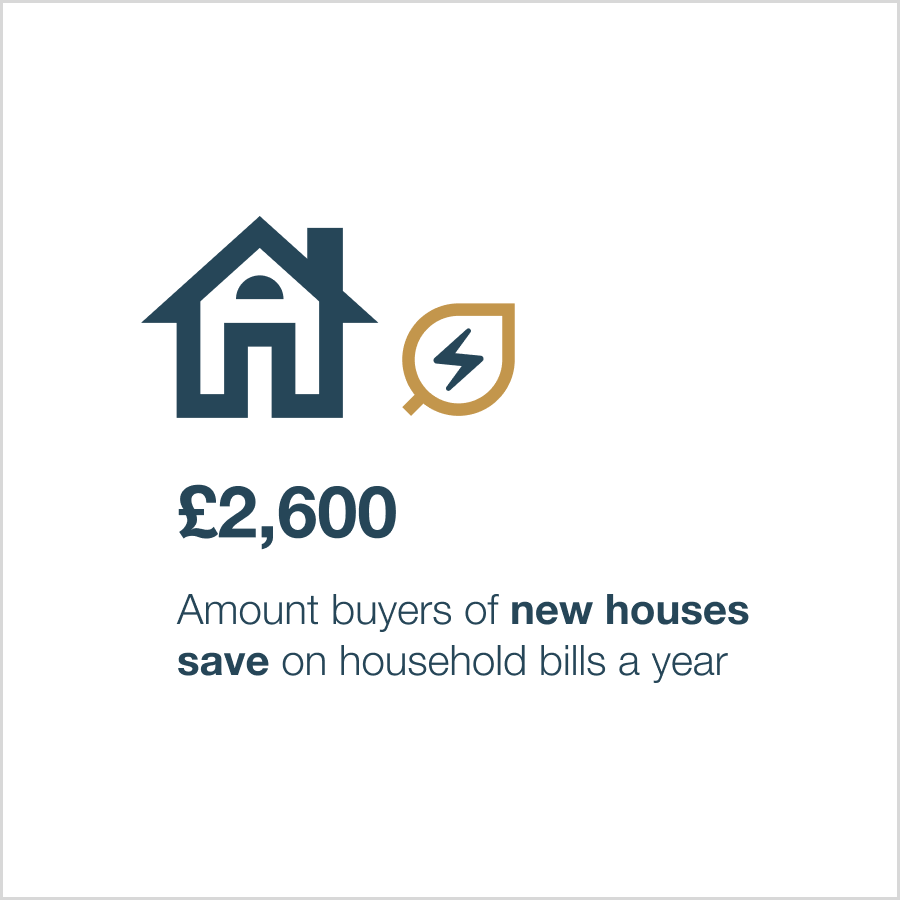 |
At Cameron Homes we build our homes with you and your future in mind, whatever that future may bring. Our homes offer an array of energy saving benefits, including premium insulation of walls, roof and ceilings and double glazed windows for improved insulation. They are also equipped with award-winning and energy efficient Worcester/Bosch boiler as well as radiators with individual temperature zone controls, and premium appliances with energy efficient ratings all helping to contribute to a home that’s not only comfortable and cost efficient to run but also better for the environment.
We believe that your home should be your happy place.
A place that brings you reassurance, confidence and security. For you and your loved ones.
Start looking for your new home today
Sources
Inews.co.uk ‘Energy bills: Average household set to pay £900 more a year on energy from 2023 following Autumn Statement’ Last Accessed 18/11/2022 Link
Home Builders Federation, ‘HBF Report- Watt a Save’ Last Accessed 9/11/2022 Link
Ideal Home, ‘What is an EPC D rating and how do I improve it?’ Last Accessed 18/11/2022 Link
Nexus Energy Solutions, EPC Changes could be Harmful for Investors?, Last accessed 9/11/2022 Link


